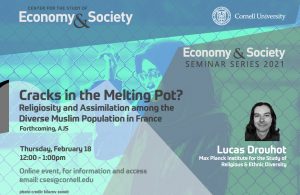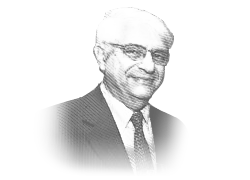Lucas Drouhot, Max Planck Institute
Cracks in the Melting Pot? Religiosity and Assimilation among the Diverse Muslim Population in France
- 12:00 - 1:00 PM
- via Zoom

The maintenance of high religiosity levels among Muslim youths in Western Europe constitutes a puzzle in need of an explanation. Focusing on France and using a new empirical strategy for the quantitative study of cultural differences between heterogeneous populations, this study first demonstrates that French Muslims form a diverse group yet one with a consistent and sizable “religiosity differential” resisting intergenerational assimilation to native levels. It then formulates and tests five hypotheses to explain the second generation’s delayed religious assimilation. Material insecurity, the perception and self-report of discrimination, parental religious socialization, transnational ties with the origin country, and neighborhood ethnic segregation are all influential but with an uneven impact across subgroups within native and Muslim populations. Together, results suggest that the religiosity differential stems from a mixture of cultural transmission from the context of origin and blocked acculturation due to stratification and social closure in the context of destination.

